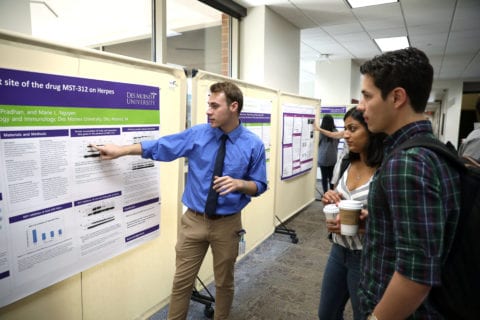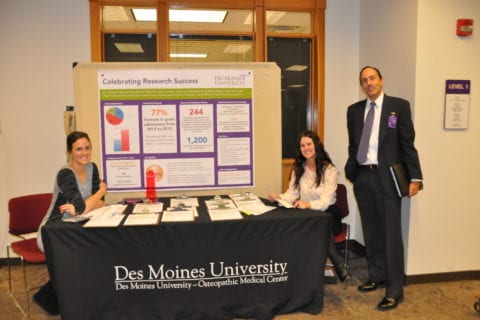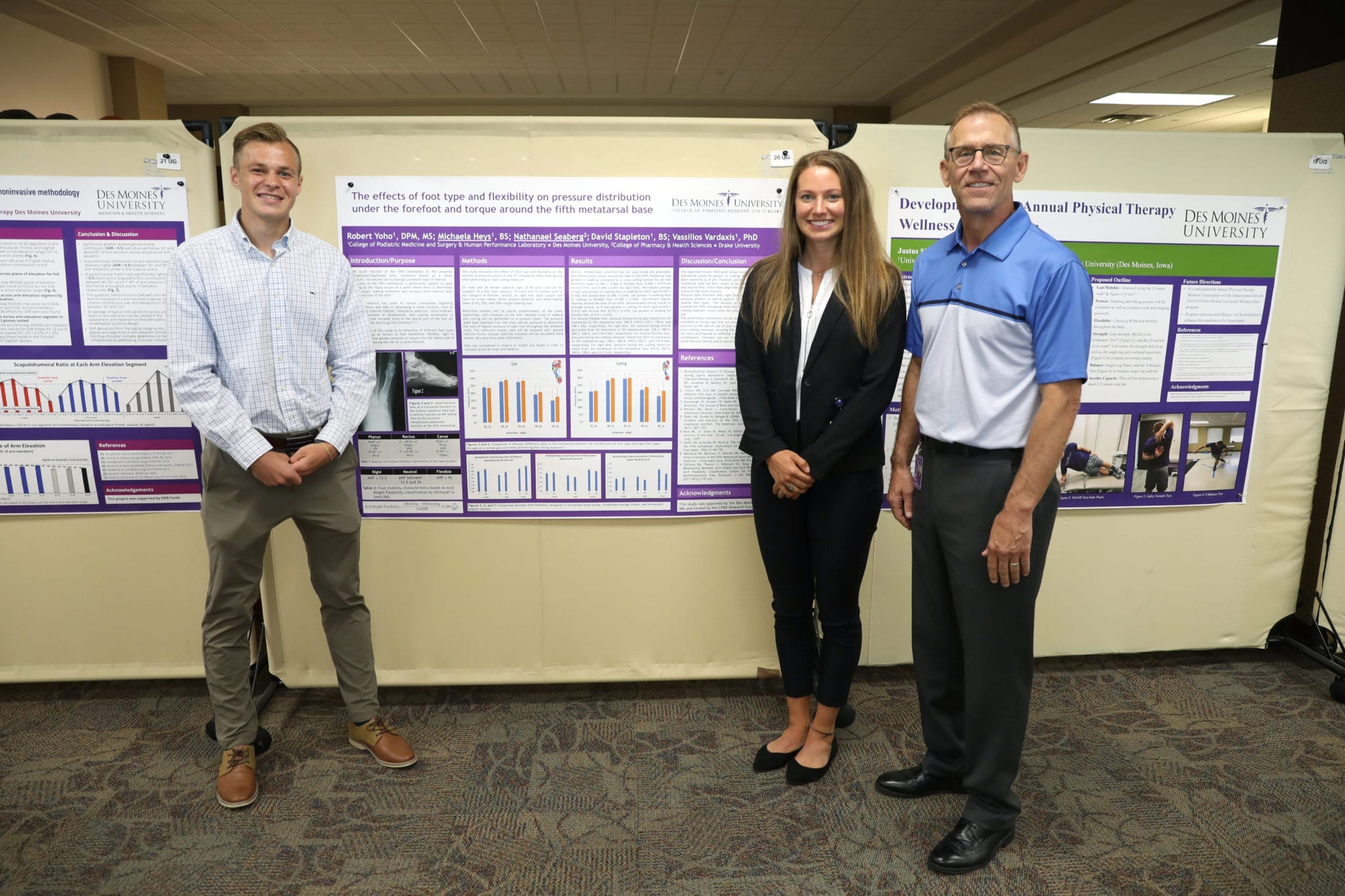Back in December 2010, nearly 170 students, faculty and other scientists gathered on the DMU campus for an afternoon of plenary sessions and poster presentations on topics in basic research, public health, therapeutics and science education. That was the University’s first major research symposium, an annual event that will celebrate its 10th anniversary on Dec. 5.
Last year, the symposium had more than 500 attendees.

“Since the first Research Symposium in 2010, research at DMU has grown considerably, both in scope and in ambition,” reflects Martin Schmidt, Ph.D., professor of biochemistry and nutrition. He was a member of the planning committee for the first symposium, and he’s been a frequent presenter. “More students and more faculty are participating in the symposium, showcasing their efforts in establishing a reputation as independent investigators. More junior faculty members are launching careers through collaborative efforts, and more of the projects presented at the symposium are the results of joint ventures between DMU faculty.”
The symposium is a signature event for DMU’s research enterprise, which also includes an annual Mentored Student Research Program and ongoing, year-round research by faculty and students. The University has taken steps through the years to support the growth in these activities.

“Four years ago, we created a collaborative laboratory space to bring together different faculty, which has improved collaborative research opportunities. We have a new forensic anthropology lab and have created facilities for research on cardiovascular disease, renal disease, nutrition and depression,” says Jeff Gray, Ph.D., vice president of research and global initiatives. “This month, we’ll move two labs to the fourth floor of the DMU Clinic, where our Human Performance Laboratory is located. This brings most of our musculoskeletal and movement science research together in one place to improve efficiency and collaborations, which is another great opportunity for the future.”
“Our students really desire more research experience as they are going into residency and employment markets,” Dr. Gray says. “All of these improvements in facilities and increased grants translate into opportunities for students to learn from faculty active in basic to highly sophisticated research.”
Along with facilities enhancements, faculty have attracted a significant increase in internal and external grant funding. In addition to generating a greater number and diversity of scientific discoveries, all of that growth is good news for students.

Robert Yoho, D.P.M., M.S., FACFAS, dean of the College of Podiatric Medicine and Surgery, served on the planning committee for and presented at the University’s first symposium and has enjoyed watching the event flourish.
“I have been impressed with the increase in volume, diversity and quality of research product presented at the DMU Research Symposium, only to be matched by the increased number of students who participate and the energy they bring to the event,” he says.
The Research Symposium has expanded physically as well as scientifically, adds Dr. Schmidt.
“Attendance at the Research Symposium has grown to a point where the largest lecture hall is filled to capacity and posters are expanding into the hallways,” he says. “The large numbers of attendees are making this event a soundly positive opportunity for scientific discussion.”

